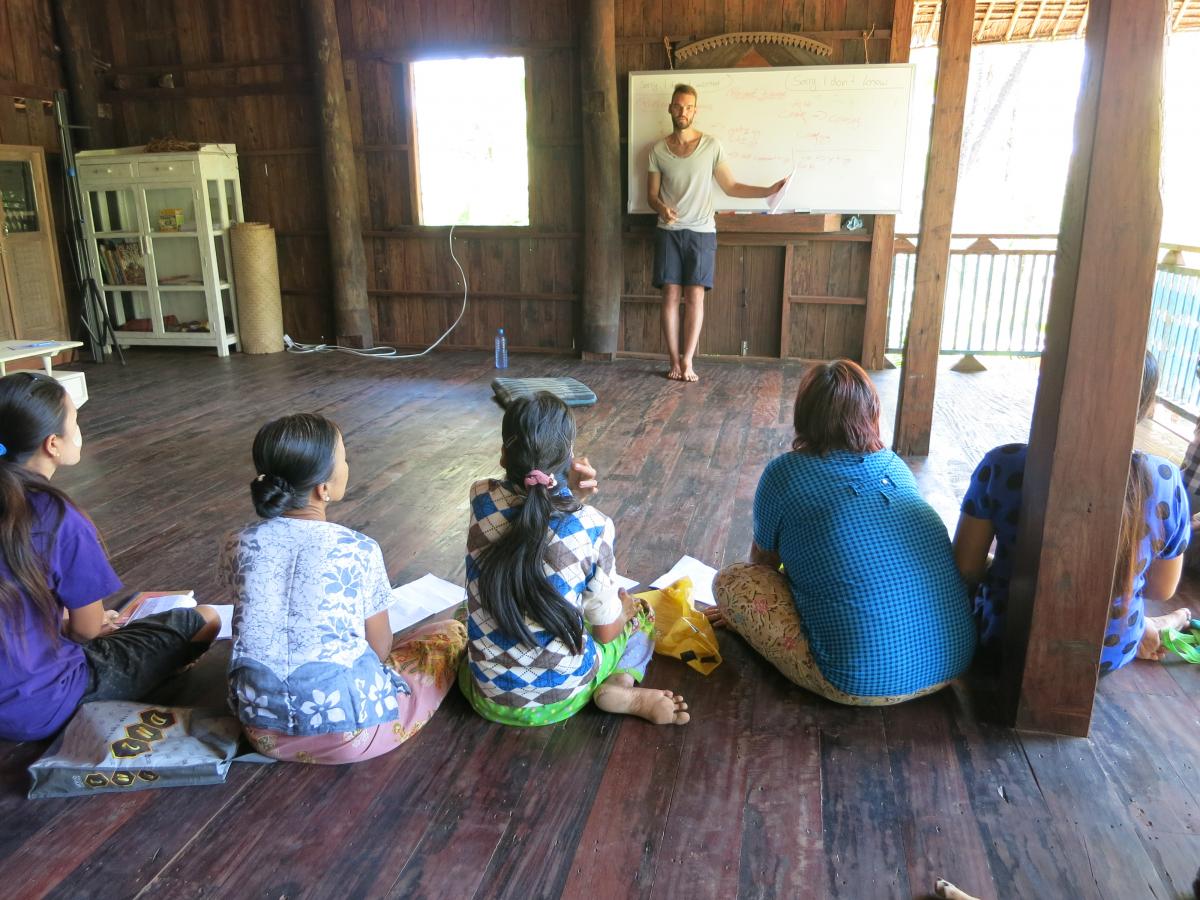Paul Schreiber, participant of the German master program Sustainable Tourism Management at the University of Applied Sciences and Sustainable Development Eberswalde, is currently doing his internship with us. Here he shares his first impressions and insights with you.
Paul's Report
After a year in Indonesia, a winter in South Africa and months of travelling in Europe, Africa and Asia I finally found what so many people – including me – are searching for so long: this one lonely beach with turquoise water and a beautiful landscape in its surroundings. Consequently, moving into an empty Bungalow wasn’t a matter. Water, a toilet, electricity or even a proper bed weren’t necessary since my new office in a chair on the porch overlooking the beach was more than a fair compensation.
During the first days I explored the premises of our Lodge whilst familiarizing myself with the project's concept and adventuring the village and nearby nature. My first walks through Zikhone were accompanied by older people’s staring and shy greetings. However, soon the staring turned into a smile and the shy greetings became a welcoming Mingalarba.
An essential part of my work is the involvement of the local community into our project. Therefore, we first needed to figure out the current challenges and issues our neighbours are facing and which hopes and expectations they have into our project. After a while of getting to know each other, three village groups were invited for informal discussions - first the village elders, followed by the local women association and finally the youth group. Over 30 villagers (Zikhone has 101 houses) came across bringing in their opinion. Through these conversations, the dream of the lonely beach changed into the reality of the small village of Zikhone with all its problems and challenges.
Job opportunities are quite rare in the second poorest region of Myanmar, especially when the Gulf of Bengal suffers from decades of overfishing and no longer guarantees a regular income. Accordingly people are in hopes of being employed by us. Whilst we expected this, the groups’ wish for an active participation was rather surprising. Every group wished that we not only raise some funds for their activities but also bring in our expertise. Finally we touched on the topic of education. The discussion with the young group was pretty heavy for me since people in my own age told me that, even though they finished school and some even graduated from university, they feel not well educated as they can neither speak English nor know how to handle a computer. Here we identified our first priority to make an impact. A few weeks after the informal round tables we set up an English course open to everyone scheduled for two or three classes per week depending on the student’s leisure time. However, just after the first lesson was done, the students asked for a daily course. We agreed spontaneously and are now meeting for class in our reception every noon. You can feel the growing trust towards our project as the villagers can see that we are not only talking, but trying our best to attend to their wishes and problems.
Thus, the welcoming Mingalarba changed into a lovely How are you? Meanwhile we play Volleyball after work every single day and our village friends are even looking for a direct interaction with our visitors dropping by from time to time. When two of my fellow students visited us for an interview the locals challenged us straight ahead for a volleyball match.
Another important part of the lodge’s philosophy is the appreciation and use of local products. Hence, we visited local production facilities of potential partners. The traditional work of our village's blacksmith was stunning and the coconut oil production with an ox interesting. We also visited potential food suppliers, though the egg production shocked me. Both producers are using battery cages where the chickens have to sit as long they are able to give eggs without any space to move. What happens with them after these maximum 2 years is not known but guessed. The facilities' smell wasn’t better either. When I showed the pictures to Ueli we immediately decided that there must be a fairer way for the chickens to provide eggs to our guests. Thus, the idea of an Arakan Nature Lodge micro-financed chicken farm - ran by one or two village families - was born. The farm is still in its planning phase but we hope to get this project going by mid March.





